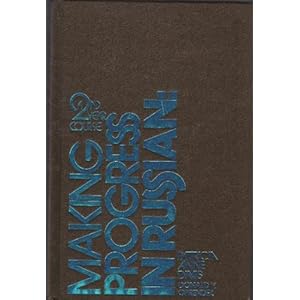I am often asked for advice on how to learn second languages. I have written a few popular-press articles on the topic before, but these articles are mostly high-level advice, whereas the questions I usually get asked are specific (what books should I read, where should I study, etc.), so I thought it was time to write up the resources that I have found useful.
First, a disclaimer: What I write below is based only on my own experience learning languages. While I am a language researcher, I know no more about the research into second-language learning than the run-of-the-mill psycholinguist (that is, what you would learn by overhearing water-cooler conversations and attending talks at conferences). Second, I make no claim to be Ken Hale's second coming; that is, I'm not an especially gifted language-learner, just a persistent one. I leave to the reader to decide whether that gives me more or less insight into the problem.
Textbooks
 I cannot say enough good things about Japanese For Busy People. The title comes from the fact that the chapters are bite-sized. You can work through one in half an hour or less. The series is designed to get you speaking as quickly as possible, and so focuses on words and phrases you might actually need. (This might seem like an obvious strategy, but it did not occur to the writers of my introductory Russian textbook, which filled opening pages with words for, for instance, 18th century Russian course-drawn carriages.)
I cannot say enough good things about Japanese For Busy People. The title comes from the fact that the chapters are bite-sized. You can work through one in half an hour or less. The series is designed to get you speaking as quickly as possible, and so focuses on words and phrases you might actually need. (This might seem like an obvious strategy, but it did not occur to the writers of my introductory Russian textbook, which filled opening pages with words for, for instance, 18th century Russian course-drawn carriages.)Difusion publishes a series of fantastic, conversation-based textbooks, such as Gente and Aula, at least some of which were (I'm told) developed in collaboration with my favorite language school (see below). Like Japanese For Busy People, these books use short lessons focused on high-frequency words and phrases, and provide many useful exercises (the more you practice, the more you learn).
I have used a few Mandarin textbooks. My favorite is the Integrated Chinese series, which comes in both traditional and simplified character versions. It's not as impressive an achievement as the Japanese and Spanish books I mentioned above, but a solid resource.
I haven't had as much luck with Russian textbooks, though I do have a soft spot in my heart for Making Progress in Russian (the classic 1973 text by Davis and Oprendek, not the more recent revival -- I warn you, it isn't easy to find), which is meant for intermediate students. This is not a great text for learning to speak, and especially not for learning to speak modern spoken Russian (it was because of what I learned from this textbook that one my professors in Russia told me, "You speak such beautiful Russian. Like Leo Tostoy!" which wasn't really the effect I was going for). But I appreciate its thoroughness and precision.
Schools
I have studied at several specialized language schools. I can't imagine a better one than La Escuela de Idiomas Nerja. Many of the teachers that I had in 2005 (and wrote about here) are now gone , but Paco Dueñas, who seemed to me to be the heart and soul of the institution, is still there, so I expect it is still as good. If you want to learn Spanish, I cannot imagine any faster way to do it than attend this school.
The Mandarin Training Center in Taipei, Taiwan, and the Russian Language & Culture Institute at Smolnyi in St. Petersburg, Russia, were less mind-blowing than La Escuela de Idiomas, but and solid emersion options that served me well.
Podcasts and Online courses
These days, I find that I have little time for textbooks and certainly no time to go spend a couple months in Nerja. But I have a lot of time to listen to podcasts, especially in the gym (be kind to your ears and use a safe volume; there is no point in learning a language if you are just going to go deaf in 15 years. The real trick here is to find a gym that is quiet enough that you can keep the volume down). Here is what I listen to:
ChinesePod & SpanishPod -- the only resources on this list that require subscriptions -- are high quality mini lessons, which involve various exercises on their website, an optional phone app, and a downloadable podcast. I haven't found the phone app all that useful, and I can't say I ever actually had time to use the website, but I love the podcasts, which teach some new vocabulary based around a conversation and provide a lot of useful cultural context. Plus they are just fun to listen to.
On the topic of Internet sites, I should point out DuoLingo, brainchild of the incomparable Luis von Ahn, in which you can learn a new language (currently, you can choose between Spanish, French, German or English), while helping translate pages on the Internet (seriously). I haven't used it a great deal (again -- little time or patience for working through problem sets on the Internet), but I have poked around the Spanish site a bit, and it seems very good.
There are a couple other podcasts meant for language-learners that deserve mention. Notes in Spanish, while not as polished as SpanishPod, is free. The aptly-named "Slow Chinese" podcast provides short audio essays on various topics, using advanced vocabulary but at a slow pace (helpful for the learner).
Otherwise, I listen to a lot of news in foreign languages: In Russian, I get my daily business news from the Vedemosti podcast (Vedemosti is the Russian equivalent of the Wall Street Journal). I also really like NHK, a Russian-language international news broadcast from Tokyo. I occasionally listen to BBSeva (from the BBC), but I find the half-hour format too constraining to listen to it regularly. In Spanish, my favorite show is from RFI (based in France), which covers mostly European and Latin-American news, though I sometimes also listen to Cinco Continentes, which is produced in Spain and similarly covers international news.
I am continually looking for short-form podcasts on non-news topics (as interesting as it is to hear the international news from several different perspectives, it does get repetitive), but I haven't had much luck, and many of the podcasts that I enjoyed have closed up shop. Right now, I occasionally listen to a science podcast called "A hombros de gigantes", which covers a range of scientific topics, both historical essays and current events, but takes around an hour to do so, and I don't always have an hour available.
Books
The other primary way I keep up my foreign languages is reading books in those languages. One particularly good option is to re-read a favorite book , translated into the language you want to work on. (Right now, I'm reading His Dark Materials in Russian.)
But the best is...
Many of the methods listed above are focused on receptive language. That's fine, but you learn more by actually trying to produce language. So nothing is better than having a friend who is fluent in the language and is willing to talk to you in it (and who has the discipline not to break back into English). Pen-pals are also good, even if the pen-pal is yourself. (When I keep a travel journal, mainly because I often travel to the same places repeatedly, and it's helpful to remember where that restaurant you really liked was. A little while ago, I started keeping it in Spanish so that I'd get at least some minimum amount of writing in Spanish in every so often.)
And personally I'm much more motivated to learn a language when I actually have someone to speak it with!





















No comments:
Post a Comment